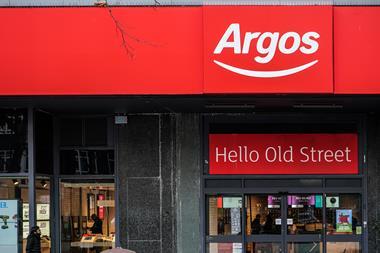
The food industry has become a “political football” in the renewed battle over Scottish independence and devolution as a result of the UK’s internal market plans, claims the head of FDF Scotland.
The UK government’s internal market plans, released last month, aim to avoid trade barriers within the domestic market after Brexit, but have triggered a renewed constitutional battle with the devolved administrations, which argue it is an attack on their regional powers.
The proposals set out how laws currently decided by Brussels will be assigned among the UK and devolved administrations from next year. Governments in Scotland, Wales and Northern Ireland would be allowed to set some of their own regulatory standards for food production, but due to a mutual recognition clause, they would have to also accept food from all regions of the UK.
The SNP fears that in the event of a UK-US trade deal, Scotland could therefore be forced to accept chlorinated chicken, for example, even if it had legislated against it. Regulation covering food labelling, nutritional standards and health claims could all be affected.
The return of EU policy areas to the UK is an issue that needs solving, said David Thomson, CEO of FDF Scotland, but there are concerns the food sector is being used as a “political football” to further the political aims of each administration.
“Food and drink is pretty unique in the effects of this legislation so it means that of course people will want to try and draw them into the political war of words,” he said, pointing out the UK, Scottish, and Welsh governments have all spoken to the FDF in recent weeks “to make sure we understand their point of view”.
The Scottish government publicly outlined its opposition to the plans last week, claiming it was “fundamentally inconsistent with devolution”.
Thomson said the “cynical take” on Holyrood’s response is to see it as manoeuvring to mirror EU legislation “which will allow them an easier way to re-access the EU if they achieve independence”.
“The less cynical side is there are some real questions on the impact of this legislation on devolution which haven’t really been answered.”
Regardless, Thomson emphasised the sector is keen to avoid any and all political playmaking. “Businesses don’t feel they should be political footballs in all of this. Our overwhelming message back to the governments of the UK is to sort this out without it becoming a point of contention.”
Andrew McCornick, president of NFU Scotland, agreed the internal market proposals are “absolutely dripping in politics”.
“It feels [the UK’s plans are] more imposed than agreed. Maybe that is why the Scottish government is coming at it the way they are.”
A UK government spokesperson said: “Our proposals ensure businesses, including the food industry, can continue to prosper after the transition period ends by guaranteeing their ability to trade freely with each nation of the UK as they have done for centuries.
“Without these necessary reforms, the way we trade goods and services between the home nations could be seriously impacted, harming the way we do business within the UK.”
A Scottish government spokesman said it is ”working with the UK Government, Welsh Government and Northern Ireland Executive on common frameworks but the key point is that process, unlike the UK Government’s Internal market proposal, is based on agreement rather than imposition.”



















No comments yet